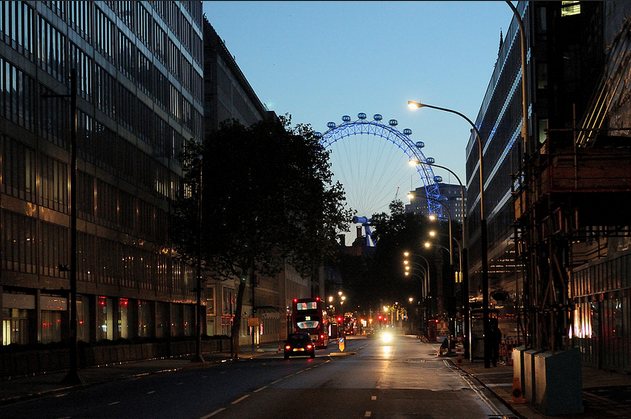
Geothoughts 4 examines how civic participation is changing with the advent of geospatial digital technologies.
By Drew Bush
We’re very excited to present you with our fourth episode of Geothoughts. You can also subscribe to this Podcast by finding it on iTunes.
This podcast examines how civic participation is changing with the advent of geospatial digital technologies that allow for cities to collect many forms of data on their citizens and for citizens to communicate with cities and about all that happens within them. We interview Geothink’s Head Renee Sieber, Associate Professor in McGill University’s Department of Geography and School of Environment, to find out her opinions on this subject.
Thanks for tuning in. And we hope you subscribe with us at Geothoughts on iTunes. A transcript of this original audio podcast follows.
TRANSCRIPT OF AUDIO PODCAST
This week we sit down with Geothink Head Renee Sieber to discuss how geospatial digital technology continues to reshape citizen interactions with cities. Sieber is an associate professor in McGill University’s Department of Geography and School of Environment.
[Geothink.ca theme music]
Welcome to Geothoughts. I’m Drew Bush.
“It’s a very different world in which we can on a Saturday evening or an early Monday morning know what’s happening in our cities and comment on what’s happening in cities. It’s technologies like sensors in road networks that allow cities to know how we’re travelling through a town, where we are meeting up with people to, for example, create dynamic neighborhoods of where people congregate and want to see their friends to then create better urban design for cities. So the technology is really transforming the way we can have this interaction.”
For example, governments can now know if you visit certain parks, go to certain places for coffee, and meet certain friends while doing either. So, theoretically at least, they can now design urban spaces and cities themselves to be safer, more vibrant, and better suited to the range of activities taking place in these places.
“Indeed, we can customize the city to individual desires. Well, that seems both incredibly convenient and incredibly Orwellian at the same time.”
Now in the third year of a five-year partnership research grant funded by the Canadian Government’s Social Sciences and Humanities Research Council, Geothink involves 26 researchers and 30 partners in examining the implications of increasing two-way exchanges of locational information between citizens and governments.
“Cities are facing tremendous budget cuts, so they may not, they literally may not have the money to have lengthy public meetings. They may need to respond quite rapidly to challenges, so they may not have the time. So it is in everyone’s best interest to try to create smooth yet meaningful interactions, and we have technologies to do that—both technologies in terms of your phone and also technologies in the imbedded infrastructure of cities. But how is that going to affect a very deep meaningful conversation, and in deep meaningful ways that cities respond to the needs of their residents and the needs of factors outside their municipalities?”
That’s where the interdisciplinary research of Geothink’s team and collaborators as well as its partnerships with many cities come in, said Sieber. All of these new interactions and ways of governing or being a citizen require research to be better understood.
“Well it’s a really exciting time. It’s an opportunity for citizens to be engaged when they don’t necessarily have the time to attend a meeting. So they can both watch city activities online through their own dashboards. They can communicate as issues arise. They can, perhaps cities may wish to create polls of online sentiment or they want to alert citizens of emergency situations or of interesting happenings in a city.”
Not all applications of new digital technologies have positive connotations. For example, these technologies make it easier for cities to conduct better surveillance of citizens since they can track people through the cell-phones they carry or by the places they check into.
Such privacy concerns have the potential to make people very uncomfortable, particularly because it means placing more trust in governments and technologies that could misuse or abuse this data, according to Sieber. Other problems include the mistaken belief that new technologies mean more people can access and interact with their cities. While efforts to take some conversations or debates online might be advantageous to certain populations, it can also be disenfranchising to others, Sieber added.
However, that doesn’t mean that more digital opportunities haven’t translated into more opportunities for citizens to interact with their cities and their services.
“I think we are in an environment in which we have really broadened opportunities for citizens to participate through social media, through these various kinds of devices that we have. So I think its very exciting and also we can have citizens more fully engaged as members of the city in reporting in monitoring events in real time.”
However, Sieber cautions that we must remember technology is not a panacea.
“Democracy can be very, very messy, and sometimes you need to get people who don’t necessarily agree with each other in the same room with each other. You can not necessarily rely totally on harvesting, for example, Tweets or Facebook posts to understand public sentiment. Democracy and perceptions about what a city should do are often much more textured than that.”
[Geothink.ca theme music]
[Voice over: Geothoughts are brought to you by Geothink.ca and generous funding from Canada’s Social Sciences and Humanities Research Council.]
###
If you have thoughts or questions about this podcast, get in touch with Drew Bush, Geothink’s digital journalist, at drew.bush@mail.mcgill.ca.
